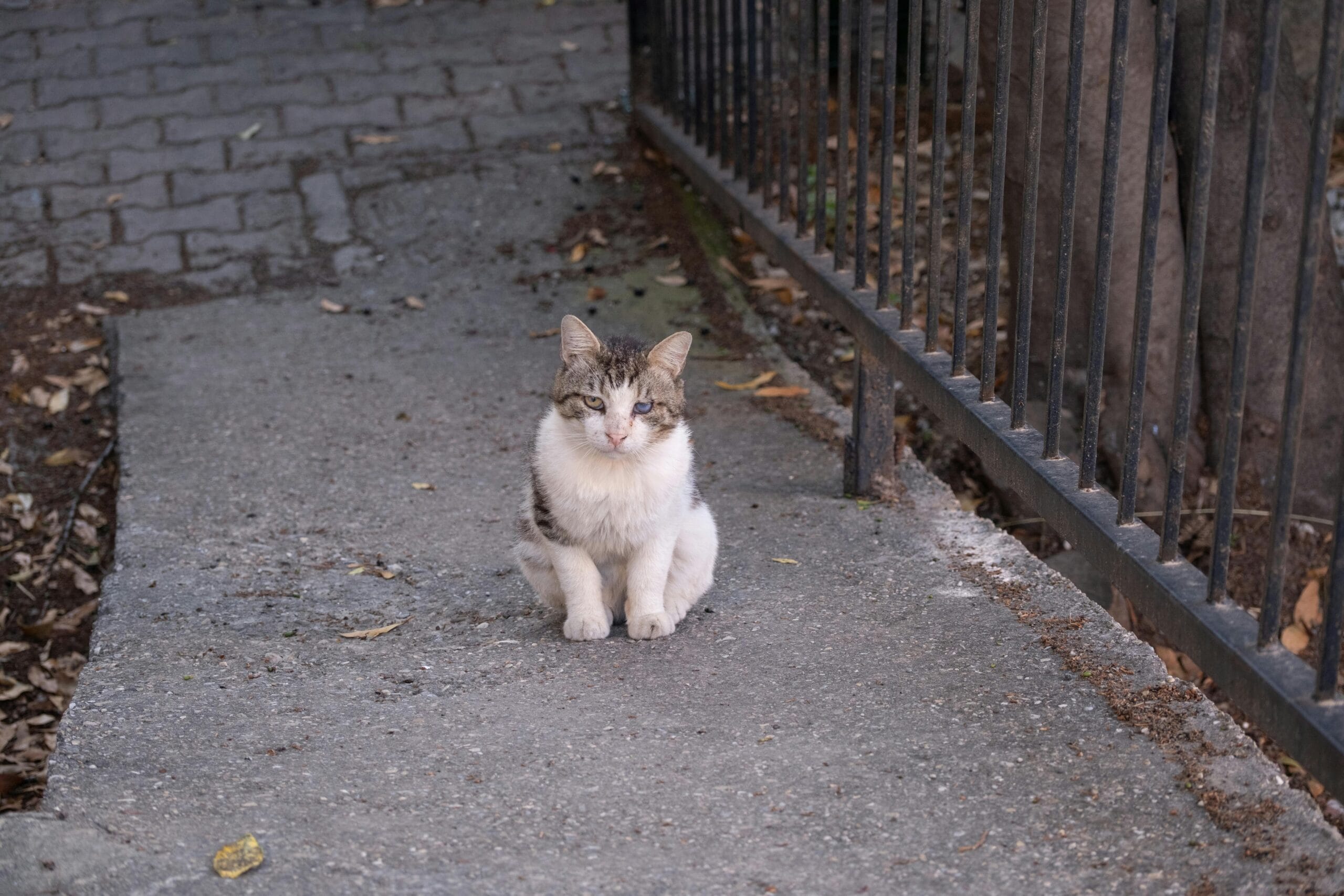Is Tea Tree Oil Safe For Cats? Discover the truth about tea tree oil cat toxicity and poisoning risks. Learn essential safety tips for your feline friend. Read now! #cats #teatreeoil #petowner
Is Tea Tree Oil Safe For Cats? A Comprehensive Guide to Tea Tree Oil Cat Toxicity
The internet is awash with information about essential oils, their uses, and their purported benefits. However, when it comes to our beloved feline companions, it’s crucial to tread carefully. Many essential oils, including the popular tea tree oil, pose significant risks to cats. This comprehensive guide delves into the question: Is Tea Tree Oil Safe For Cats? We will explore the dangers of tea tree oil toxicity in cats and provide you with the information you need to keep your furry friend safe.
Understanding Tea Tree Oil Cat Toxicity
Tea Tree Oil Cat Toxicity is a serious concern. Unlike humans, cats lack the necessary enzymes to effectively metabolize certain compounds found in tea tree oil. This means that even small amounts of ingestion or topical application can lead to severe health problems. The primary toxic component in tea tree oil is terpinen-4-ol. This compound can cause various symptoms, ranging from mild irritation to life-threatening conditions. Unlike some human remedies, there is no safe level of tea tree oil exposure for cats. Always err on the side of caution and keep tea tree oil completely out of reach of your cat.
Symptoms of Cats Tea Tree Oil Poisoning
The symptoms of Cats Tea Tree Oil Poisoning can vary depending on the amount of oil ingested or applied and your cat’s individual sensitivity. However, some common signs include:
- Lethargy and weakness
- Loss of coordination (ataxia)
- Tremors and muscle spasms
- Depression
- Vomiting
- Diarrhea
- Increased salivation
- Difficulty breathing
- Seizures (in severe cases)
- Skin irritation and redness (from topical application)
If you suspect your cat has ingested or been exposed to tea tree oil, it’s crucial to act quickly. Even mild symptoms warrant immediate veterinary attention. Delaying treatment can lead to more severe complications and potentially fatal outcomes.
What to Do If Your Cat Ingests Tea Tree Oil
Immediate action is critical if your cat has ingested tea tree oil. Do not attempt to induce vomiting at home unless specifically instructed by your veterinarian. This can sometimes cause more harm than good. Instead, contact your veterinarian or an animal poison control center immediately. Have the following information ready:
- The type of tea tree oil (concentration and brand)
- The amount your cat ingested or was exposed to
- The time of ingestion or exposure
- Your cat’s age, weight, and breed
- Any symptoms your cat is exhibiting
The ASPCA Animal Poison Control Center (https://www.aspca.org/pet-care/animal-poison-control) and the Pet Poison Helpline (https://www.petpoisonhelpline.com/) are excellent resources for emergency situations. They can provide expert advice and guidance on how to proceed.
Preventing Tea Tree Oil Exposure in Cats
The best way to address Is Tea Tree Oil Safe For Cats is a resounding no. Prevention is key when it comes to protecting your cat from tea tree oil toxicity. Here are some essential preventative measures:
- Store tea tree oil and all essential oils out of reach of your cat, preferably in a locked cabinet.
- Use caution when diffusing essential oils in your home. Cats are highly sensitive to even airborne particles of many essential oils. Consider using pet-safe alternatives instead. If you must diffuse oils, ensure the diffuser is placed far away from your cat’s living areas.
- Be aware of household products that contain tea tree oil. Many cleaning products and personal care items include tea tree oil as an ingredient.
- Educate family members and visitors about the dangers of tea tree oil for cats.
Similar to the dangers of tea tree oil, other plants and substances can also be harmful. For example, you should know that daffodils are poisonous to cats, as are monstera plants. Knowing what to avoid helps you keep your cat safe.
Comparing Tea Tree Oil to Other Potentially Toxic Substances
While tea tree oil is particularly toxic to cats, many other substances pose similar or even greater risks. Cherries, for instance, contain cyanide compounds which are very dangerous. Similarly, grapes and raisins can cause kidney failure. Even something seemingly innocuous like peppermint oil requires caution.
The Importance of Veterinary Care
If you even suspect your cat has been exposed to tea tree oil, don’t hesitate to seek veterinary care immediately. Early intervention is crucial in mitigating the effects of poisoning. Your veterinarian will be able to assess your cat’s condition, provide appropriate treatment, and monitor their progress. Remember, early treatment significantly increases the chances of a full recovery.
Frequently Asked Questions about Tea Tree Oil and Cats
Q: Can a small amount of tea tree oil harm my cat?
No amount of tea tree oil is considered safe for cats. Even a small amount can cause adverse reactions. It’s best to keep tea tree oil completely away from your cat.
Q: My cat licked a small amount of tea tree oil off my skin. Should I be concerned?
Yes, you should contact your veterinarian or an animal poison control center immediately. Even a small amount of exposure can be harmful.
Q: Are there any safe essential oils for cats?
There’s limited research on essential oils’ safety for cats. To avoid risks, it’s best to avoid all essential oils around your cat.
Q: What are the long-term effects of tea tree oil poisoning in cats?
Long-term effects can vary, but some possibilities include organ damage and chronic health problems. Prompt veterinary care is essential to minimize long-term consequences.
Conclusion: Prioritizing Your Cat’s Safety
In conclusion, the answer to Is Tea Tree Oil Safe For Cats is a definitive no. The toxicity of tea tree oil to cats cannot be overstated. By understanding the risks and taking preventative measures, you can protect your feline friend from this potential hazard. Always prioritize your cat’s safety and seek veterinary attention immediately if you suspect any exposure.
Share your experiences and knowledge in the comments below. Have you ever had a close call with your cat and essential oils? What steps do you take to keep your cat safe from potentially toxic substances?

Frequently Asked Questions: Tea Tree Oil and Cats
- Is Tea Tree Oil Safe For Cats?
- No, tea tree oil is not safe for cats. It’s highly toxic to them, even in small amounts. Avoid all contact.
- What are the signs of Tea Tree Oil Cat Toxicity?
- Symptoms of Tea Tree Oil Cat Toxicity can include incoordination, depression, vomiting, diarrhea, loss of appetite, and tremors. In severe cases, it can lead to seizures and death.
- My cat licked a surface with tea tree oil on it. What should I do?
- Immediately contact your veterinarian or an animal poison control center. The sooner treatment begins, the better the outcome. Cats Tea Tree Oil Poisoning requires prompt veterinary care.
- Is a small amount of tea tree oil harmful to my cat?
- Even small amounts of tea tree oil can be toxic to cats. Their bodies metabolize it differently than humans, making them highly susceptible to its harmful effects. There is no safe amount.
- Can I use diluted tea tree oil on my cat?
- No. Dilution does not make tea tree oil safe for cats. The toxicity remains, and any contact should be avoided.
- My cat got tea tree oil on its fur. What should I do?
- Wash the affected area thoroughly with a pet-safe shampoo and plenty of lukewarm water. Rinse well and contact your veterinarian immediately. This is a potential case of Tea Tree Oil Cat Toxicity.
- Are there any alternative natural remedies I can use on my cat instead of tea tree oil?
- Yes. Many pet-safe alternatives exist for various skin conditions and flea treatments. Consult your veterinarian for recommendations.
- How quickly does tea tree oil poisoning affect cats?
- Symptoms can appear within hours of exposure, although the severity can vary depending on the amount ingested or absorbed.
- What is the treatment for Cats Tea Tree Oil Poisoning?
- Treatment depends on the severity of exposure and usually involves supportive care such as inducing vomiting or administering activated charcoal to absorb the toxin. Your vet will determine the best course of action.
- Where can I find more information on Tea Tree Oil Cat Toxicity?
- Consult your veterinarian or contact the ASPCA Animal Poison Control Center for expert advice on Tea Tree Oil Cat Toxicity and appropriate treatment.

Is Tea Tree Oil Safe for Cats?
Tea tree oil, while popular for its antiseptic and antifungal properties in humans, poses a significant risk to cats. Unlike some plants, where a small ingestion might be tolerable (though we always recommend avoiding this, see for example, the information on whether cats can eat grapes here), tea tree oil is toxic to felines, even in small amounts. This is due to the terpinen-4-ol component, which cats are particularly sensitive to.
The dangers extend beyond ingestion. Dermal exposure – meaning the oil comes into contact with the cat’s skin – can also lead to toxicity. This could occur through topical application of products containing tea tree oil or if your cat comes into contact with surfaces where the oil has been used. Symptoms of tea tree oil poisoning can range from mild skin irritation and vomiting to more serious issues such as tremors, incoordination, and even death. It’s crucial to remember that cats are highly sensitive to many essential oils, similar to how they react to certain plants like daffodils (find out more here).
If you suspect your cat has ingested or been exposed to tea tree oil, immediate veterinary attention is crucial. The quicker your cat receives treatment, the better the chances of a positive outcome. Don’t attempt home remedies; seek professional help right away. The same urgency applies to other potentially toxic substances, for instance, the dangers associated with certain houseplants such as monstera (learn more about their toxicity to cats here).
As a responsible cat owner, preventing exposure is paramount. Keep all products containing tea tree oil well out of reach of your feline companion. This includes cleaning products, diffusers, and personal care items. Remember, even seemingly harmless essential oils like peppermint oil (learn more about peppermint oil safety for cats here) can cause problems for our furry friends. Always prioritize your cat’s safety and err on the side of caution when introducing any new substance into your home.
While we’ve focused on tea tree oil, remember to be vigilant about all potentially harmful substances around your cat. Even seemingly innocuous foods like cherries (check the safety of cherries for cats here) need to be carefully managed to prevent accidental ingestion.
In conclusion, tea tree oil is definitively not safe for cats. Preventative measures are vital to ensure your cat’s health and well-being.
Is Tea Tree Oil Safe For Cats, Tea Tree Oil Cat Toxicity, Cats Tea Tree Oil Poisoning